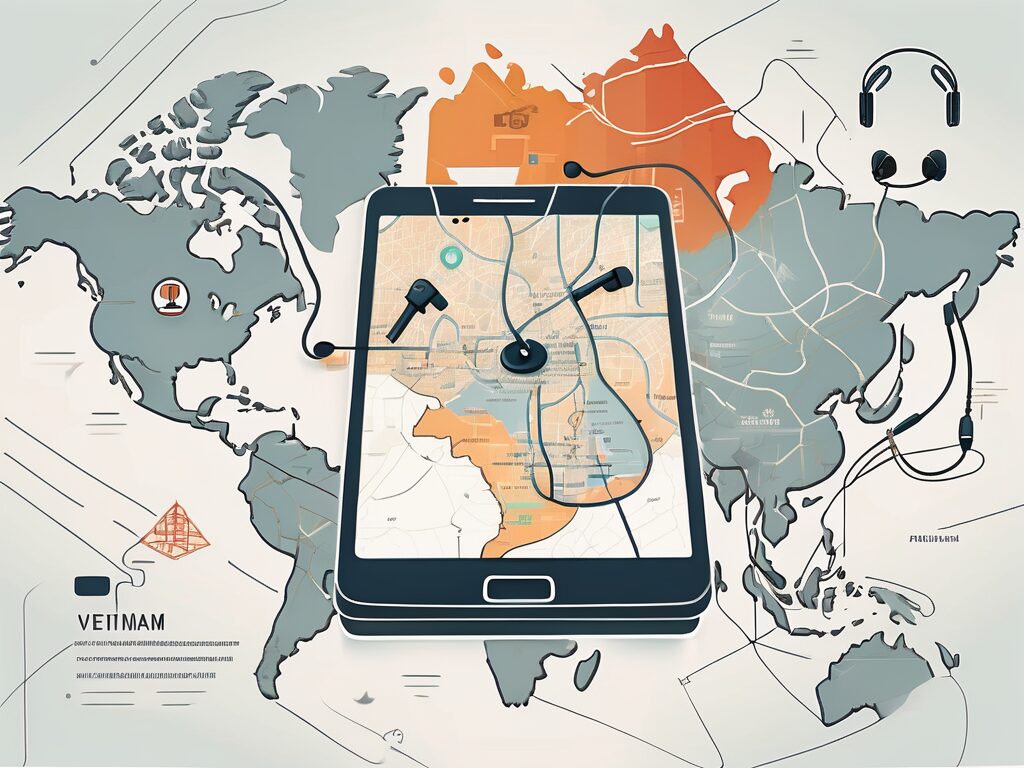Venturing into the world of language learning can be an exciting, yet daunting task. The Vietnamese language, with its unique tones and script, presents a fascinating challenge for language enthusiasts. However, with the right strategies and a bit of perseverance, you can unlock the power of Vietnam and its rich culture. Here are five tips to help you on your journey.
1. Immerse Yourself in the Culture
One of the most effective ways to learn any language is to immerse yourself in the culture. This doesn’t necessarily mean you have to pack your bags and move to Vietnam, although that would certainly be an adventure! You can immerse yourself in Vietnamese culture right from the comfort of your own home.
Start by exploring Vietnamese music, films, and literature. These mediums will not only expose you to the language in its most natural form, but also give you a glimpse into the country’s history, traditions, and way of life. It’s like killing two birds with one stone – you learn the language and the culture simultaneously.
Another way to immerse yourself is by engaging with the Vietnamese community in your area. Attend cultural events, try Vietnamese cuisine, and make friends with Vietnamese speakers. This will give you a chance to practise your language skills in real-life situations, which is invaluable for language acquisition.
2. Use Technology to Your Advantage
In this digital age, there are countless resources available online to aid your language learning journey. From language learning apps to online courses, the world is your oyster. These tools often incorporate interactive elements, such as games and quizzes, which make learning fun and engaging.
Apps like Duolingo, Babbel, and Rosetta Stone offer Vietnamese language courses that you can access anytime, anywhere. They provide a structured learning path and cover all aspects of the language, including vocabulary, grammar, and pronunciation. It’s like having a personal tutor in your pocket!
Online language exchange platforms, such as Tandem and HelloTalk, are also worth exploring. These platforms connect you with native Vietnamese speakers who are learning your language. You can chat, send voice messages, and even have video calls with your language partners. This is a great way to practise speaking and listening skills, and you might even make some new friends along the way.
3. Master the Tones
Vietnamese is a tonal language, which means that the meaning of a word can change depending on the tone used to pronounce it. There are six tones in Vietnamese, and mastering them is crucial for effective communication. This might seem intimidating at first, especially if you’re coming from a non-tonal language background, but don’t worry, it’s not as hard as it sounds!
Start by familiarising yourself with the tones. Listen to native speakers, repeat after them, and practise, practise, practise. You can use online resources, such as YouTube videos and language learning apps, to help you with this. Remember, it’s all about training your ear and your voice to recognise and produce the different tones.
Don’t be afraid to make mistakes. It’s all part of the learning process. Even native speakers make mistakes sometimes. The important thing is to keep trying and not get discouraged. With time and practice, you’ll get the hang of it.
4. Learn the Script
Unlike many Asian languages, Vietnamese uses a Latin-based script, known as Quốc ngữ. This makes it relatively easier for English speakers to learn. However, the script has several additional diacritics for tones and certain vowel sounds, which can be a bit tricky to get used to.
Start by learning the alphabet and the sounds each letter represents. Then move on to words and sentences. Reading Vietnamese texts aloud can be a good way to practise both your pronunciation and your reading skills. You can find Vietnamese texts online, or you can get a Vietnamese language book.
Writing is also an important part of learning the script. It helps reinforce what you’ve learned and improves your memory. Try writing a few sentences in Vietnamese every day. You can write about your day, your thoughts, or anything you like. The key is to make it a habit.
5. Be Consistent and Patient
Learning a new language is a marathon, not a sprint. It takes time, effort, and a lot of patience. But with consistency, you can make steady progress and eventually reach your goal.
Set aside a specific time each day for language learning. It doesn’t have to be a long session; even 15 minutes a day can make a difference. The important thing is to make it a part of your daily routine.
Remember, it’s okay to have off days. It’s okay to feel frustrated or overwhelmed. It’s all part of the journey. Don’t be too hard on yourself. Celebrate your progress, no matter how small. Every word learned, every sentence understood, is a step closer to your goal.
So there you have it, five tips to help you unlock the power of Vietnam through language learning. It’s a journey filled with challenges and rewards, and we hope these tips will make your journey a little easier. Happy learning!
Elevate Your Teaching Career with IPGCE
As you embark on the rewarding journey of learning Vietnamese, consider how enhancing your qualifications with IPGCE can further unlock your potential. The International Postgraduate Certificate in Education is not just a stepping stone to achieving Qualified Teacher Status; it’s a gateway to global opportunities and professional growth. With IPGCE, you can overcome the barriers of stringent qualifications, limited career progression, professional isolation, and the need for a deeper understanding of global education systems. Embrace the chance to join a community that values your development as much as you do. Don’t let inadequate credentials hold you back. Join the UK’s #1 Teacher Training Course today and witness a transformation in your teaching career.

